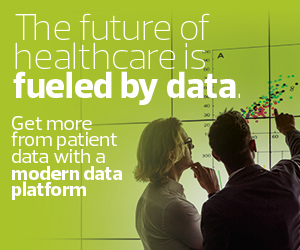Clinician burnout, negative patient experiences and poor health outcomes are all problems that generative artificial intelligence tools could mitigate. From automated documentation to clinical decision support, the technology has the potential to transform healthcare workflows and care delivery. Generative AI can handle rote tasks and give clinicians a more accessible look at patient data. However, the ability of an AI algorithm is dependent on the quality of the data itself.
At the AWS Summit in June in Washington, D.C., AI experts and healthcare leaders discussed the benefits, risks and practical applications of generative AI in healthcare. Dr. Naqi Khan, physician executive for generative artificial intelligence and machine learning healthcare industry solutions at Amazon Web Services, explored the importance of data quality as a foundation for healthcare AI implementations.
PREPARE: Expert guidance helps healthcare organizations achieve meaningful transformation with AI.
AI Success Requires Healthcare to Be Data-Driven
“Data is the differentiator when it comes to AI and generative AI,” said Khan, who recommended that healthcare leaders spend more time thinking about their data.
The healthcare industry is experiencing annual data growth of 30 terabytes for electronic health records data, 100 terabytes for patient monitoring data, 2 petabytes for medical imaging data, 2 petabytes for omics data and 5 petabytes for digital pathology data, according to Khan. In total, hospitals generate 50 petabytes of data annually, according to the World Economic Forum. However, 97 percent of this data goes unused because it’s unstructured.
“Everyone wants to be data-driven, but only about a quarter of organizations feel they are being successful,” Khan said.
Click the banner below to learn how a modern data platform supports decision making.


Not only do hospitals want to be data-driven, but patients are also demanding it. They want to be treated in ways that make sense based on their specific circumstances. Applying AI tools to quality data is one way to drive the industry toward fit-for-purpose data, but Khan emphasized the importance of training large language models (LLMs) with patient data without exposing it and risking a lapse in patient data privacy. He explained that patient data should be leveraged for meaningful use cases such as matching patients with clinical trials and connecting individual data sets.
“The core challenge is that this data is growing almost boundlessly and becoming more complex. As we try to make this data more useful and meaningful for a healthcare organization, it’s important to connect it,” said Khan, adding that layering in genetics data during an X-ray review, for instance, can reveal more about a patient’s actual health status.
LLMs can be useful in unpacking all of the different data sources healthcare organizations have within their ecosystems. An LLM, a type of machine learning model, can predict what might happen next in a sequence. For it to be applied to real-world use cases, it’s imperative that the data not contain biases or information gaps. Khan said the industry must think about data in the context of using generative AI.
He pointed out that the responses from ChatGPT aren’t always transparent and that users might be using a general-purpose model for tasks that require specific data.
EXPLORE: Medical schools train the next generation of clinicians to better understand AI.
How Can Healthcare Organizations Build an Integrated Data Strategy?
“First of all, data needs to be your core asset,” said Khan, explaining that models should ultimately become commodities for organizations. “Where organizations thrive and succeed is by looking at their data and realizing that that is what they’ve spent so much time collecting and that they should treat it as the asset that it is.”
We’re getting people these tools they just didn’t have access to or that weren’t possible because of how data used to live.”
Dr. Naqi Khan
Physician Executive for Generative AI and ML Healthcare Industry Solutions, AWS
It’s equally critical that healthcare organizations can support collaboration and data sharing within the health system so that citizen data scientists can seek answers to important questions. The next step is federated data, which can create more useful and less biased data models. Training an algorithm used to predict congestive heart failure based on data from New England will make it difficult to deploy somewhere in Asia or Africa, for example.
Khan suggested that a federated approach can reduce bias and allow data sharing in a meaningful way that maintains compliance and protects patient data.
AWS offers several services to help healthcare organizations meet their integrated data strategy goals:
- AWS HealthLake: A cloud service that allows healthcare organizations to view data using the Fast Healthcare Interoperability Resources, store data securely and analyze data using machine learning models
- AWS HealthImaging: A cloud service that enables healthcare organizations to store, analyze and share medical images
- AWS HealthOmics: A service that helps healthcare organizations and their partners store, query and analyze omics data, including genomic and transcriptomic data
- AWS HealthScribe: A service that enables healthcare organizations to capture audio of patient encounters with clinicians and turn it into clinical notes using generative AI
- Amazon Bedrock: A service that gives healthcare organizations access to several foundational models to build generative AI applications
- Amazon Q Developer: A service that assists with software development using generative AI
- Amazon SageMaker: A service that helps healthcare organizations build, train and deploy machine learning models
Using these tools, biopharmaceutical companies can automate the process of matching patients with relevant clinical trials. The technology can help researchers synthesize data quicker than before. And it can transform data sharing to advance pediatric cancer research, a goal of the partnership between AWS and the Children’s Brain Tumor Network.
“We’re getting people these tools they just didn’t have access to or that weren’t possible because of how data used to live,” Khan said.
gorodenkoff/Getty Images












